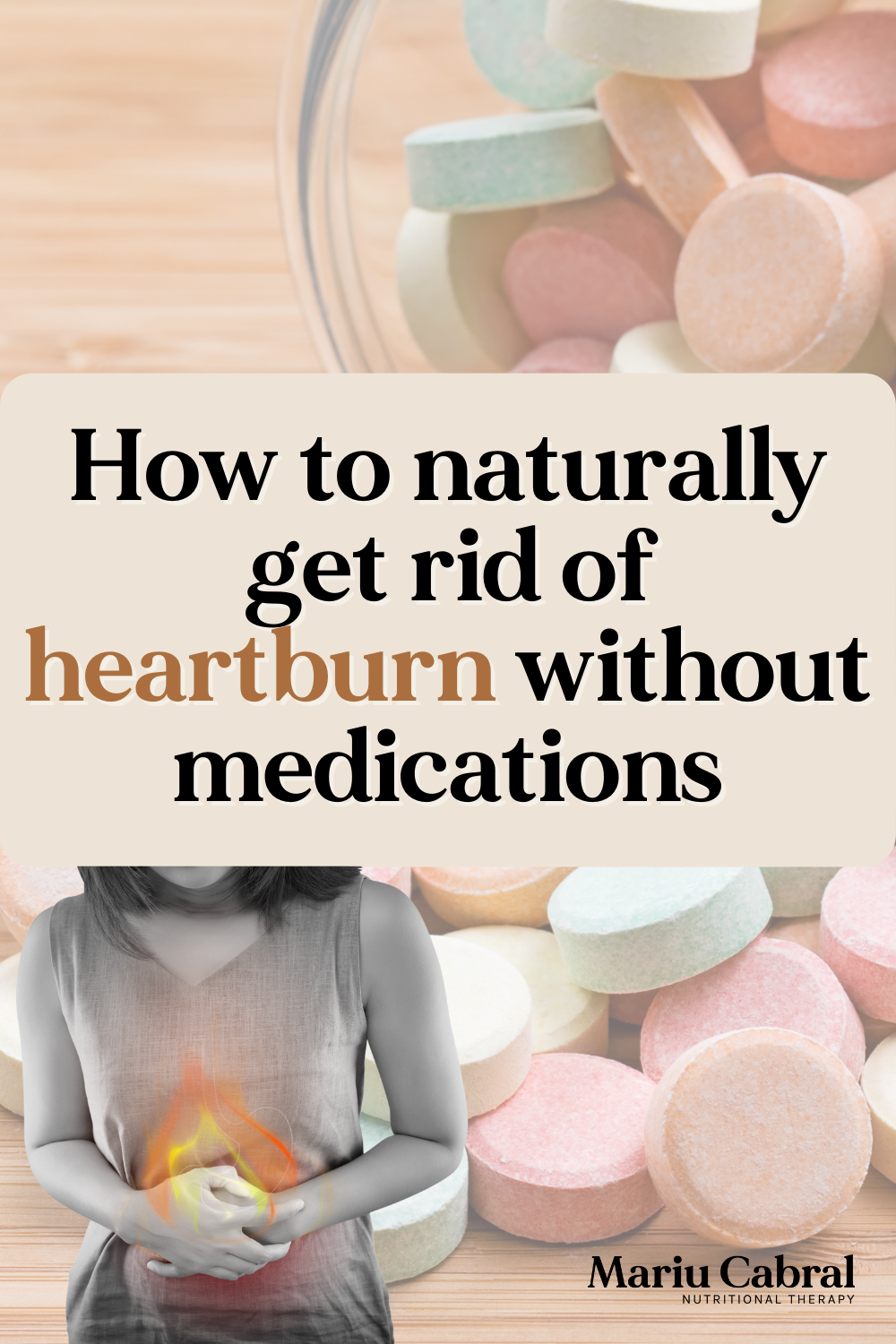The Dangers of Antacids for Heartburn and Acid Reflux
Do you or have you experienced a burning sensation in your chest (heartburn), do you burp constantly, feel excessively full, or does your stomach get upset by medications and vitamins? It’s likely that you have acid reflux.
The common step when someone has acid reflux is taking an over-the-counter medication like Alka-Seltzer or Tums, or in the more severe cases, acid-blocking medications. These medications don’t heal you from heartburn, in fact, they make it worse because they suppress the production of stomach acid and irritate the gastric mucosa. When there’s not enough stomach acid and there’s irritation of the stomach, we’re not only more likely to get more and worsened heartburn symptoms, but we’re also more susceptible to infections like H.pylori.
Unfortunately, the antacid industry is worth billions of dollars, so they are not interested in finding a cure– they profit off our sickness.
What’s likely causing my heartburn?
Common causes of heartburn are cigarette smoking, fried foods, alcohol, carbonated beverages, overeating, and coffee. These foods or conditions cause “intra-abdominal pressure, a condition which forces gastric contents up into the esophagus” (Weatherby, p. 110). Not having enough stomach acid is a problem because the process of digesting these foods may be inefficient.
Acid reflux gets worse with age because as we age we produce less stomach acid. Unfortunately, this is not a “dad” issue anymore– more and more people are suffering from it, even people in their 20s. Millennials and GenZ can blame their heartburn on the state of our processed foods, overeating, and not adequate amounts of protein in their diet since protein is important for stimulating the production of stomach acid.
How to get rid of heartburn naturally?
Pin this!
Like with anything, you don’t wake up one day and just get rid of it, but there are things that you can do to minimize and eliminate the symptoms, from foods to conscious lifestyle choices.
Lifestyle changes
Chew your food thoroughly: give your stomach less work to do by using your teeth the were they are meant to– chewing until your food is liquid, then swallow.
Avoid laying down after meals for at least one hour.
Avoid drinking lots of water right before, during, and after a meal (small sips before and after are ok). Wait at least 30 minutes after eating to get your hydration in
Stop hormonal birth control if possible: hormonal birth control depletes you of key nutrients necessary for stomach acid production, such as zinc and B vitamins.
Foods to Eat and to Avoid
Eat bitter foods: foods like dandelion, garlic, ginger, radish, and arugula are fantastic for stimulating stomach acid production.
Incorporate apple cider vinegar and lemon: a tbsp in a glass of water or as dressings for salads
Avoid ultra-processed foods like candy, cheap desserts, highly refined breads, etc.
Avoid fast foods and fried foods.
Supplements
Digestive bitters: digestive bitters are herbal supplements that stimulate stomach acid production naturally. This is one of my favorite supplements and I always have it around.
HCl (or hydrochloric acid): a stomach acid replacement supplement that may work better for people with severe acid reflux. Always consult with your practitioner before taking HCl as it can be quite strong and can cause discomfort if not taken properly.
Zinc with copper: zinc is incredibly necessary for acid production, yet when we have heartburn or acid reflux, is possible that we’re not absorbing it properly. Supplementing with zinc for a little while is highly important. I like to pair zinc to have a balance of both minerals.
A note on PPIs (proton-pump inhibitors): these medications are highly potent and should not be stopped cold turkey. Work with your practitioner to restore stomach acid production with a safe PPI weaning protocol.
I hope this article was useful. For personalized recommendations on your unique gut symptoms, you can take my free quiz here.
References:
Weatherby, D. (2004). In Signs and symptoms analysis from a functional perspective (p. 110). essay, Bear Mountain Publishing.
Kresser, C. (2020). In Heartburn & GERD. ebook. Accessed through chriskresser.com.

